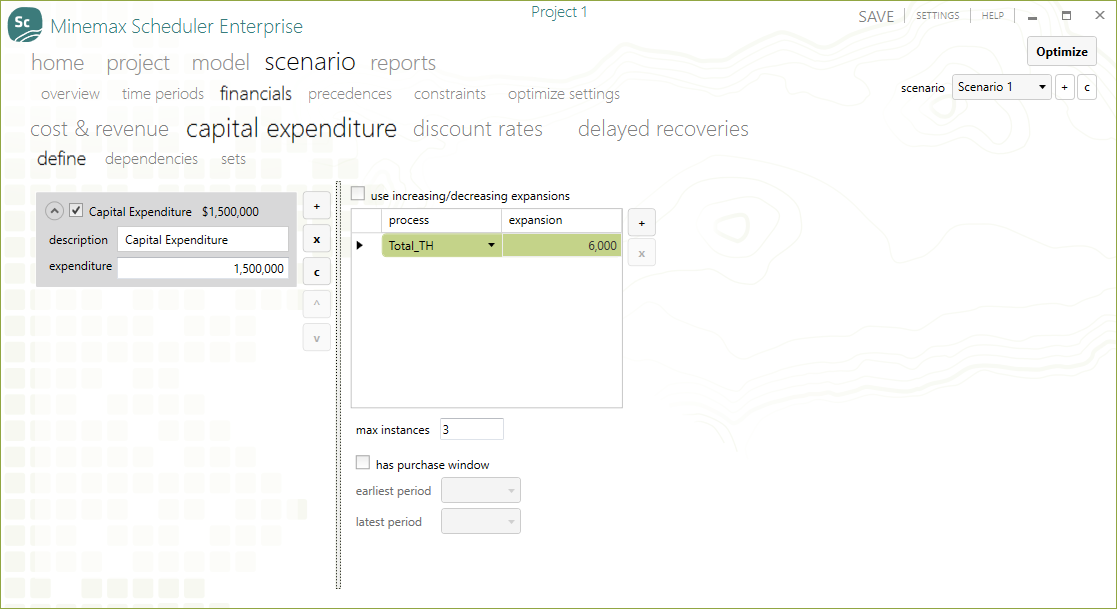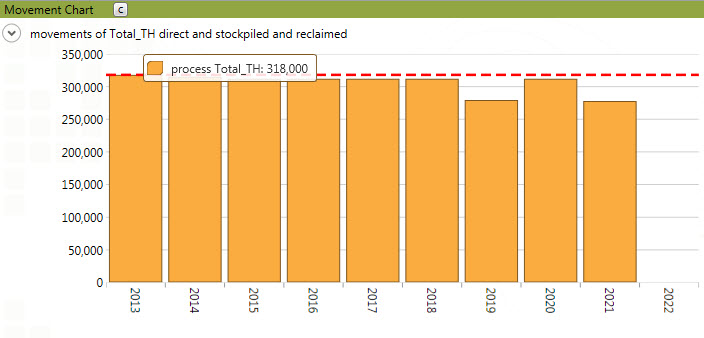Optimize with Capital Expenditure
To optimize a project with Capital Expenditure (CAPEX):
- Select scenario | financials | capital expenditure to configure the capital expenditure for the process and the scenario selected. The example below shows an expansion of process Total_TH (Total Truck Hours) by 6000 truck hours. The expansion is constant over time and the maximum number of three instances is applied to the entire schedule if CAPEX is utilized.

- Select scenario | constraints to constrain the process which has been selected for the capital expenditure expansion. The examples below display the constraints for process Total_TH.
- Enter a maximum of 0 if no existing capacity is available at the start of the schedule.

- Enter a value > 0 that represents the existing capacity for each time period. When optimizing, Minemax Scheduler determines if and when a process should be expanded to an increased capacity.

- Enter a maximum of 0 if no existing capacity is available at the start of the schedule.
- Select scenario | optimize settings to define optimization settings. Capital expenditure can be used in forward, sliding window and global modes.
- Generate a schedule by clicking the Optimize button.
- Select scenario | reports | dashboard designer to create a report dashboard with a movement chart and a financial table.
- Select scenario | reports | view to analyze the schedule results.
- If capital expenditure has been utilized:
- The movement chart shows an increased capacity in the movements of the particular process. In this example, the movement chart shows an increased capacity of the Total_TH process by 18,000 truck hours.

- The financial table shows a capital expenditure cost for the time period when the capital expenditure has been spent. In this example, the financial table shows three instances of the capital expenditure purchased in the first time period.

- The movement chart shows an increased capacity in the movements of the particular process. In this example, the movement chart shows an increased capacity of the Total_TH process by 18,000 truck hours.

